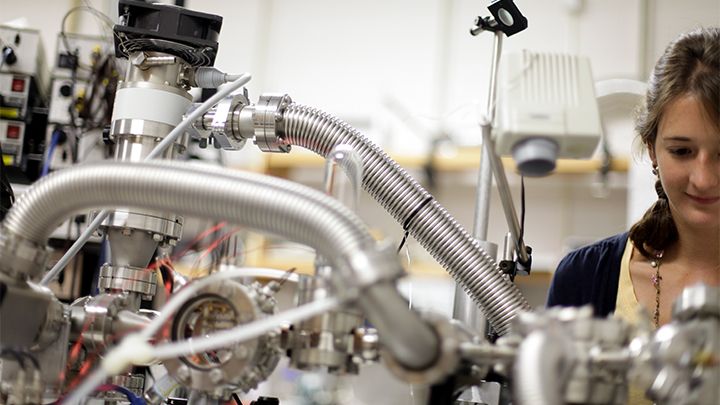Opinion: There is a structural failure in Calvin’s engineering program
I’ve been interested in science and technology for as long as I can remember, and I’ve been asking what that means for a Christian for just as long. For years I was taught that we can know God by his revelation through creation, and I wondered what this world told us about God. Easy answers like “God is big and creative” left me wanting.
I think a more fruitful line of questioning is to consider our imago dei, our image-bearing-ness of God. What does this image-laden-ness say about us, and what does it say about God? I can know love when I experience it because God made me, and God is just. We know someone not just by what they say and do, but also by what they make. We know what God values because the things and people he’s made represent and embody those values. Barring sin, of course, we couldn’t be anything that God isn’t because one can’t create what one doesn’t value. We are, as the terminology goes, value-laden.
Just as God cannot make something that he doesn’t value, neither can we. This is as clear to see in music written by the lonely for the sake of love or the disenfranchised for the sake of revolution as it is in engineering for the sake of solutions. Steve Jobs clearly valued immediate communication and access to information, albeit of a certain limited type, when he envisioned the iPhone.
To say that the things we make do not bear our image, that technology is merely an amoral tool whose social impact is determined exclusively by the user, is to condemn ourselves to an understanding of technology such that only the users of iPhones are to both thank and blame for the benefits and ills of smartphones. Furthermore, it is to deny that God’s creation can bear any mark of who God is or what God values. When put in language like this, it is clear that users are not the only party responsible for the implications of technology.
Technology is becoming the dominant medium through which we interact with our world, and we’re only going to become increasingly intertwined with technologies like artificial intelligence and virtual reality. It’s easier to see that our capabilities are extended by the internet and our phone further than they were by the telegraph.
Since our technology is becoming a bigger part of who we are, and it bears the image of those who make it, we technologists should have a sturdy education on how technology shapes the societies in which it is employed. Christian engineers should have a Biblical vision for what role technology can and should have in the world.
In the engineering program, questions about goodness are answered through the design norms, seven guiding principles for the Christian development of technology. These norms, these distinguishing features of a Calvin engineering education, are presented once briefly during freshman year and twice during senior year. They are presented as if they are tedious government regulations to be worked around and check-boxed upon completion of a design, not foundational principles in identifying problems and conceptualizing solutions. When design norms conflict or it’s difficult to identify possible ramifications, the advice is not to dig deeper or ask others, but to “let go and let God.”
Supposedly, Calvin’s approach is to dig deeper when faced with a vexing problem, not to throw up one’s hands in ignorance. The broad education afforded by the liberal arts traditional guards us technologists from, as one professor put it, not being able to think about something we can’t think about. Unfortunately, the liberal arts are undervalued at Calvin as a whole, and in the engineering curriculum specifically, at the moment in history when they should be valued the most.
I argue that now, more than ever, engineers have the responsibility to understand how technology challenges what it means to be human, that is, they need to study philosophy; we need social science to understand how technology forms the cultures and minds that use it, history for how technology has influenced humanity’s progress through time, language to know how to articulate the benefits and dangers of technology, art to understand and create beauty and theology to know the meaning behind our drive to create. Calvin College of all institutions has the obligation to lead the way in training technologists whose competencies are as broad as they are deep.
I am deeply worried that Calvin is not fulfilling its mission, that Calvin’s engineering education is not meaningfully different from one at any other institution. Some have countered that these topics are covered within our engineering classes. I can say from experience that, generally, they’re not. Others insist that the paltry core curriculum for engineering students is sufficient. When professors advise students to “get [core classes] out of the way” and they treat other classwork as an infringement on their right to your time, this can’t be the case either.
If Calvin judges its engineering program solely on professional licensing exam pass rates and the program’s similarity to public universities’ engineering programs as it does now, it has failed in its stated mission to understand “the role of technology in society.” These should not be the final goals of the engineering program but the very bottom line of what constitutes a successful Christian engineering curriculum.




